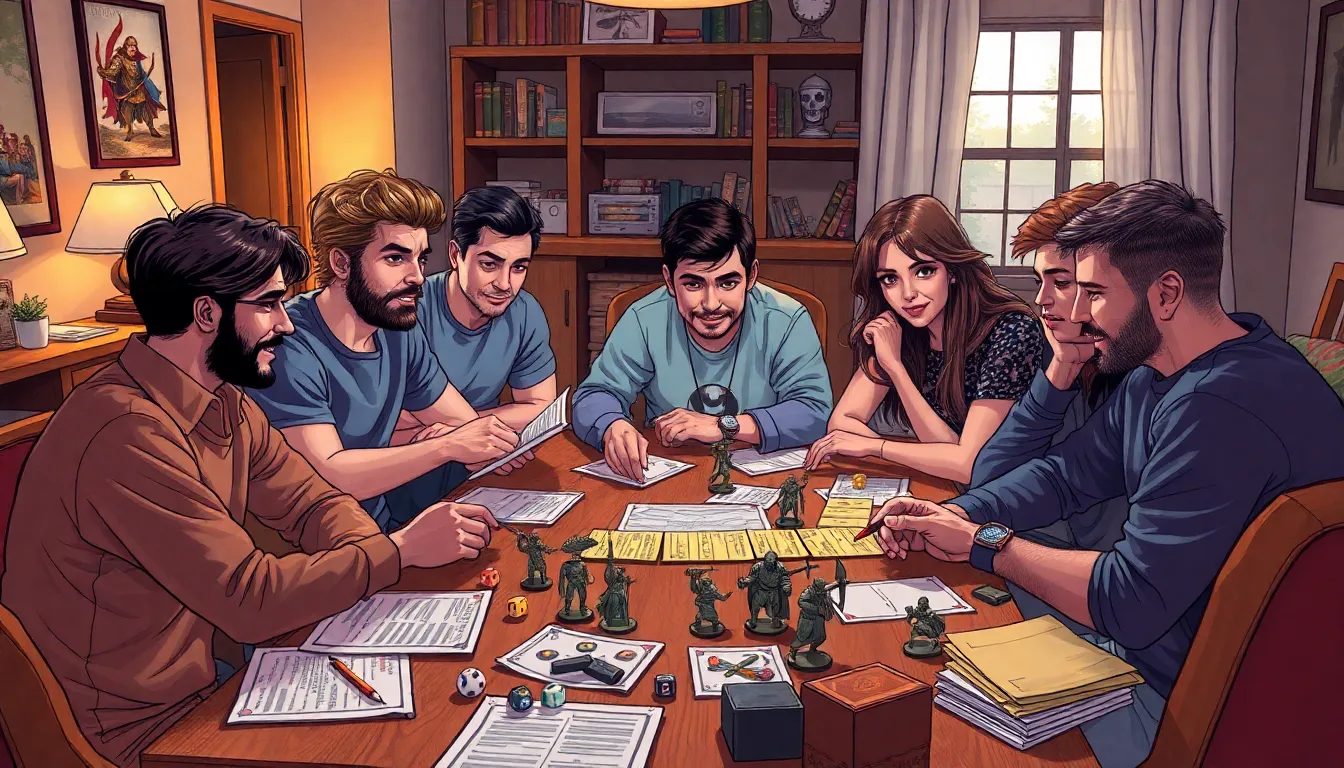In the vast universe of gaming, where heroes rise and villains fall, choosing the right class can make or break an adventure. Think of it as picking the perfect outfit for a party—except instead of impressing your friends, you’re battling dragons or saving galaxies. With so many options available, from spell-slinging wizards to axe-wielding warriors, it’s easy to feel overwhelmed. But fear not, brave gamer!
Gaming Classes
Gaming classes categorize characters, each offering unique abilities and playstyles. Players select these classes to tailor their gameplay experience.
Definition of Gaming Classes
Gaming classes represent distinct character archetypes within a game. These roles, such as wizards, warriors, and rogues, define specific strengths and weaknesses. Each class can influence gameplay dynamics significantly. For example, wizards often excel in powerful magic, while warriors prioritize physical strength. Different games may feature varying classes, allowing players to explore diverse strategies.
Importance of Gaming Classes
Gaming classes play a crucial role in gameplay and overall enjoyment. They shape players’ experiences by providing unique skills and complementary abilities. Choosing the right class enhances team dynamics, enabling successful collaboration in multiplayer scenarios. Additionally, diverse classes cater to different playstyles, from aggressive combat to strategic support. Skilled players often experiment with multiple classes to find the best fit for their personal preferences and strategies.
Types of Gaming Classes

Gaming classes shape the player experience in many ways. These categories include role-playing, strategy, action, and simulation classes, each offering distinct characteristics.
Role-Playing Classes
Role-playing classes focus on character development and storytelling. Players often assume the identities of wizards, warriors, or clerics, each with specialized skills. Players can customize attributes like strength or intelligence to enhance gameplay. Popular examples include Dungeons & Dragons and Final Fantasy, where diverse roles create unique team dynamics. Customization provides depth, enabling players to invest in their characters emotionally.
Strategy Classes
Strategy classes emphasize tactical thinking and resource management. Players navigate complex scenarios where planning, decision-making, and foresight are essential. Examples include games like Starcraft and Civilization, where strategic placement and resource allocation determine success. Each class typically offers unique abilities that impact gameplay, encouraging players to devise personalized strategies to outsmart opponents.
Action Classes
Action classes prioritize fast-paced gameplay and reflexes. Characters often include fighters and rogues, excelling in combat and agility. Titles like Devil May Cry and Call of Duty exemplify this type, requiring quick decisions during intense moments. Players thrive on adrenaline, mastering skills like combos and evasive maneuvers. Success heavily relies on individual skill and quick reactions in action-packed environments.
Simulation Classes
Simulation classes provide immersive experiences through realistic environments and scenarios. Players engage in activities ranging from city-building in SimCity to life simulation in The Sims. Each game features mechanics that reflect real-world challenges, encouraging players to adapt strategies. This class appeals to those who enjoy managing resources and controlling outcomes in a simulated context. Emphasizing creativity, these classes foster a unique connection to virtual worlds.
Benefits of Gaming Classes
Gaming classes provide numerous advantages that enhance player experiences. Players develop skills that contribute to both gaming and real-world scenarios.
Skill Development
Players enhance critical thinking and problem-solving abilities through engaging gameplay. Developing strategic approaches strengthens decision-making skills. Mastering different classes challenges players to adapt their tactics. Players gain proficiency in teamwork, which fosters collaboration in multiplayer scenarios. Enhancing reflexes and hand-eye coordination also benefits gameplay. Ultimately, skill development in gaming classes significantly contributes to player growth.
Social Interaction
Engaging with different classes encourages social interaction among players. Teamwork often becomes essential in multiplayer environments, leading to lasting friendships. Players communicate strategies, which improves collaboration and trust. Joining gaming communities presents opportunities for shared experiences and support. Players often exchange tips and strategies, enhancing their gaming skills. Social interaction through gaming classes fosters a sense of belonging and camaraderie among gamers.
Enhanced Learning
Players gain knowledge about storytelling and character development in role-playing games. Understanding strategy and resource management becomes crucial for success in strategy classes. Action classes refine quick decision-making skills through fast-paced gameplay. Simulation classes introduce real-world concepts, enhancing practical knowledge. Engaging with diverse gaming experiences strengthens overall cognitive abilities. Enhanced learning through gaming classes enriches player understanding and adaptability.
Popular Gaming Classes
Different gaming classes appeal to various player preferences and styles, significantly impacting gameplay and team dynamics. Understanding specific classes can enhance the gaming experience.
Examples from Popular Games
Wizards dominate with spellcasting abilities, seen in titles like World of Warcraft, where they unleash powerful magic. Warriors excel in strength and melee combat, exemplified by characters in Dark Souls, showcasing their brute force in battles. Rogues focus on stealth and agility, allowing players to navigate challenges cleverly in games such as Assassin’s Creed. Each class offers a unique playstyle, catering to different approaches players may prefer during gameplay. Players often choose classes based on their desired experience, from spellcasting to melee combat to stealthy maneuvers.
Community Feedback
Players consistently express their appreciation for the depth gaming classes add to their experiences. Strategy and teamwork arise, showcasing how certain classes complement each other within a team. Feedback highlights the appeal of diverse classes, allowing players to shift their roles according to their mood or gameplay approach. Community forums frequently discuss the balance of class strengths and weaknesses, helping players strategize effectively. Newcomers find guidance in veteran players, receiving tips on class selection that aligns with their unique playstyle preferences. Overall, the positive community interaction solidifies the importance of classes in shaping enjoyable and engaging gaming experiences.
Conclusion
Choosing the right gaming class is essential for an enjoyable and engaging experience. With a diverse range of options available players can find a class that aligns with their unique playstyle and preferences. This selection not only enhances individual gameplay but also strengthens team dynamics in multiplayer settings.
Exploring different classes allows gamers to develop critical skills and foster social connections within the community. As players navigate their choices they’ll discover the rich depth that gaming classes bring to their overall experience. Embracing this journey of exploration can lead to personal growth and lasting friendships in the gaming world.

